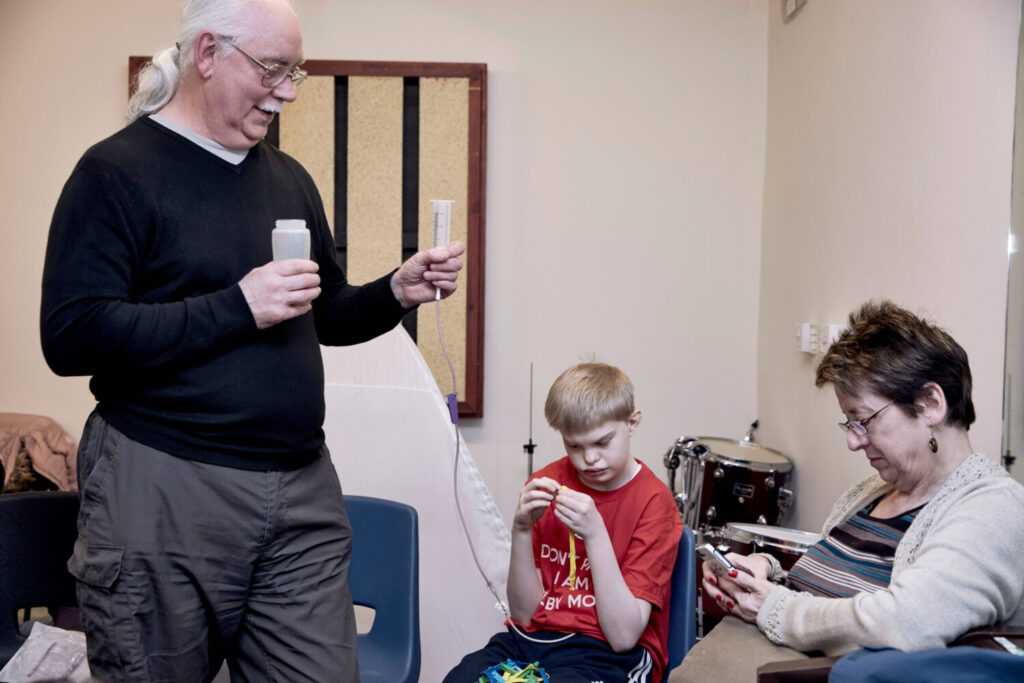New Sense research shows cost of living crisis far from over

For over a year, the cost of living crisis has impacted people with complex disabilities.
Our research, including our Potential and Possibility research, has consistently found that people with complex disabilities are struggling with the rising cost of living.
New research published today continues to paint a worrying picture of the challenges people with complex disabilities are facing including:
- 70% of people with complex disabilities are worried about how they will cope financially over the winter months.
- The same number of people with complex disabilities (70%) are also worried about keeping their home adequately warm.
- 68% of people with complex disabilities are worried about having to eat fewer meals to reduce food costs during the winter months.
Why is cost of living still an issue?
The cost of living crisis has not gone away in 2023. There are many factors that are still driving the higher cost of essentials beyond inflation, which remains high.
Over the past year we have seen higher food prices and energy bills that are still higher than they were in 2021.
We already know that before the cost of living crisis hit, people with complex disabilities were already less likely to be financially resilient making them more vulnerable to financial hardship.
According to our research people with complex disabilities remain worried about being able to afford the cost of essentials.
Over half of people with complex disabilities (59%) are concerned about their energy bills, followed by food (51%) and rent (32%).
This is particularly concerning particularly in relation to energy as there is less Government support with high energy bills over the winter months this year compared to last year.
The combination of higher costs associated with being disabled, less financial resilience and less support with high energy costs means that for many people with complex disabilities the cost of living crisis is far from over.
What needs to change for people with complex disabilities?
We have consistently been calling on the Government to take action. We believe there are a few things that we believe would make a meaningful difference to people with complex disabilities.
This includes:
- A benefits system that works for people with complex disabilities.
A high proportion of people with complex disabilities are reliant on some form of benefits in order to get by, yet benefits are not enough to live on. Our research found that 75% of people with complex disabilities are either in receipt of, or in the process of, applying for benefits.
We found that people with complex disabilities in receipt of benefits were more likely to be worried about how they would financially cope over the winter months (76%) and keeping their home adequately warm (75%).
Addressing how benefits are set and work therefore is an important part of ensuring people with complex disabilities are able to afford the cost of essentials. Hence why in the run up to the Autumn Statement we want the Government as part of their budget announcements to:
- Continue to uprate benefits in line with inflation.
- Conduct a review of how benefit rates are set and uprated to ensure we have a benefits system that works for disabled people.
- Support to help with high energy costs
People with complex disabilities face unavoidably higher energy costs. These can include costs related to maintaining and charging specialist devices and increased heating costs.
Hence in the wake of high energy prices further support is needed to support people with complex disabilities.
We have found from our research that the majority of people with complex disabilities (86%) felt a discounted energy scheme, known as a social tariff, would help them with their energy costs.
A social tariff is a scheme that would provide a discount on energy costs for people with complex disabilities. There is already a social tariff in place for broadband, showing that such schemes could potentially benefit people with complex disabilities.
Although there are many different ways a social tariff for energy costs could work, we are calling on the Government to:
- Explore options to implement a social tariff to provide a long term solution to the high energy costs faced by people with complex disabilities.
How can I show my support?
This winter we are going to be working hard to keep tackling the cost of living crisis on the agenda for decision makers. Check out our cost of living campaign to find out more about ways you can get involved in helping to influence the Government to take action.
Get in touch
If you are an MP, peer or from government and would like more information about the work of Sense and how you could be involved locally and nationally contact the team on [email protected].
If you are a researcher, or would like to know more about our policy research work please contact [email protected].
We are available 24/7 for media interviews, comment and information. Contact [email protected] or call 0203 833 0611.

